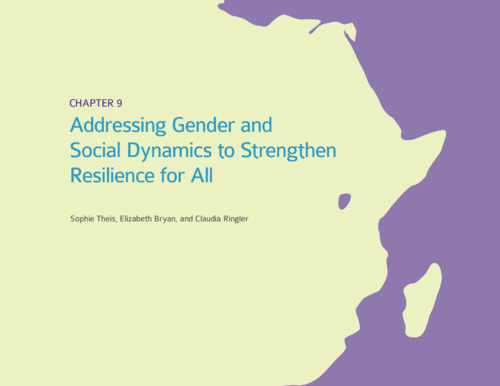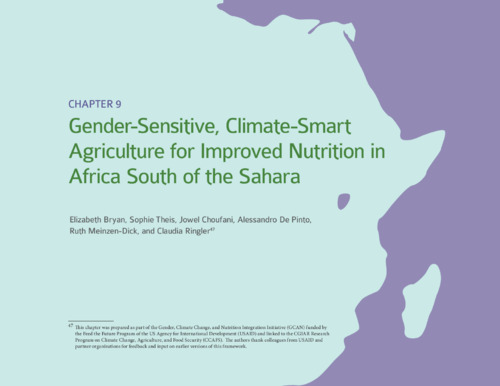Total 3 records
Copy all 3 citations

Book Chapter
Gender, resilience, and food systems
2023Bryan, Elizabeth; Ringler, Claudia; Meinzen-Dick, Ruth S.

Book Chapter
Addressing gender and social dynamics to strengthen resilience for all
2019Theis, Sophie; Bryan, Elizabeth; Ringler, Claudia

Book Chapter
Gender-sensitive, climate-smart agriculture for improved nutrition in Africa south of the Sahara
2017Bryan, Elizabeth; Theis, Sophie; Choufani, Jowel; De Pinto, Alessandro; Meinzen-Dick, Ruth S.; Ringler, Claudia
Copy all 3 citations

